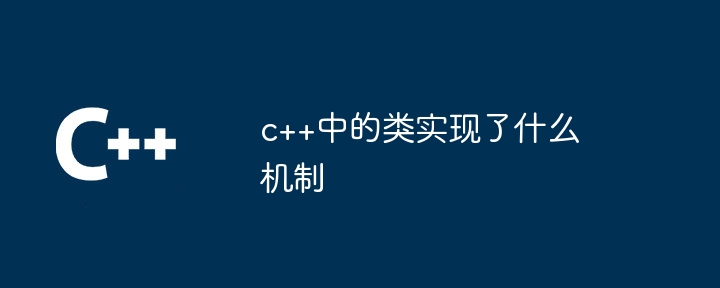
Class is a powerful mechanism for encapsulating data in C. It provides key mechanisms such as data abstraction, objects, inheritance, polymorphism and encapsulation, which helps to enhance the reusability, modularity and security of the program, and supports Object-oriented programming paradigm.

The mechanism of classes in C
Classes are a powerful mechanism in C for encapsulating data and functions , it provides the following key mechanisms:
Data abstraction:
Objects:
Inheritance:
Polymorphism:
Encapsulation:
Advantages:
The class mechanism provides many advantages to C programmers, including:
The above is the detailed content of What mechanism does a class in c++ implement?. For more information, please follow other related articles on the PHP Chinese website!
 What are the differences between c++ and c language
What are the differences between c++ and c language
 Recommended learning order for c++ and python
Recommended learning order for c++ and python
 Cost-effectiveness analysis of learning python and c++
Cost-effectiveness analysis of learning python and c++
 Is c language the same as c++?
Is c language the same as c++?
 Which is better to learn first, c language or c++?
Which is better to learn first, c language or c++?
 The difference and connection between c language and c++
The difference and connection between c language and c++
 C++ software Chinese change tutorial
C++ software Chinese change tutorial
 Cost-effectiveness analysis of learning python, java and c++
Cost-effectiveness analysis of learning python, java and c++




